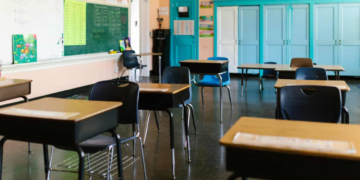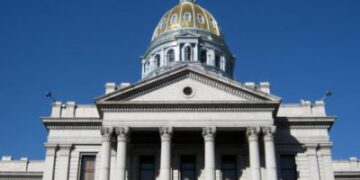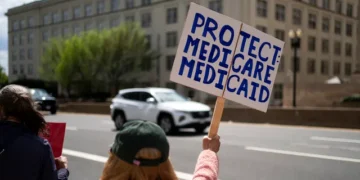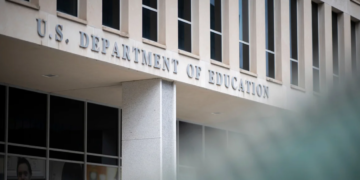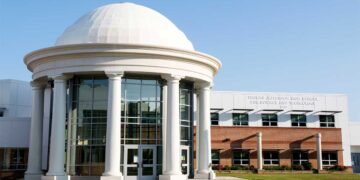Jan 28, 2025 Story by: Editor
Private schools across the South, originally created for white students during the desegregation era, are now benefiting from tens of millions of taxpayer dollars through expanding voucher-style programs, according to a ProPublica analysis.
In North Carolina alone, 39 such “segregation academies” still operate and have received voucher funding. Of these, 20 schools reported student populations that were at least 85% white in a 2021-22 federal survey, the most recent available data.
These 20 academies, founded during the 1960s and 1970s, received over $20 million in state funding over the past three years. None reflected the racial diversity of their local communities, with few even coming close.
Northeast Academy: A Case Study
Northeast Academy, a small Christian school in Northampton County near the Virginia border, exemplifies this trend. As of the 2021-22 survey, 99% of its students were white in a county where the population is about 40% white.
Since the state’s private school voucher program launched in 2014, Northeast Academy has seen a steady increase in funding. Last year, it received approximately $438,500 from the program, nearly half of its total reported tuition revenue. The academy is on track to exceed that amount this school year.
Lawrence Academy, located an hour south of Northeast, has similar demographics. The school’s Black enrollment has never exceeded 3% in a county with a 60% Black population. Despite its small size of fewer than 300 students, the academy received $518,240 in voucher funding last year, supporting 86 students.
Further south, Pungo Christian Academy has also been receiving voucher money since 2015. By the last federal survey, it reported a student population that was 98% white in a county that is 65% white.
Impact on School Segregation
These academies, which remain predominantly white, contribute to ongoing school segregation and racial divides within their communities. The trend isn’t limited to North Carolina; similar patterns emerge in other Southern states. However, North Carolina provides a clearer lens into the issue due to its robust data collection practices.
North Carolina’s voucher program, called Opportunity Scholarships, began in 2014 with a focus on low-income families, starting with about 1,200 participants. In 2023, state lawmakers expanded eligibility to include families of all income levels, sparking heated debates about the future of public education.
“We are ensuring that every child has the chance to thrive,” argued Republican Rep. Tricia Cotham. In contrast, Democratic Rep. Julie von Haefen criticized the expansion, calling it “a gross injustice to the children of North Carolina” and pointing to vouchers’ “legacy of white supremacy.”
The program’s popularity has surged, leading to a waitlist of roughly 54,000 students. Covering the costs for these applicants would require $248 million, more than doubling the current participant numbers. While Gov. Roy Cooper vetoed a bill to fund this expansion, the Republican-led General Assembly is expected to override the veto.
Barriers for Black Families
Opportunity Scholarships often fail to deliver on their promises for Black children. Private schools are not required to admit all applicants, provide busing, or offer free meals. Many Black families cannot afford the difference between the voucher amount, capped at $7,468 annually, and private school tuition, which can exceed $10,000 or even $20,000.
Josh Cowen, an education policy professor at Michigan State, noted the challenges Black families face. “Eligibility does not mean access,” he said.
Among the 20 segregation academies identified in North Carolina, nine were at least 30 percentage points more white than their surrounding counties, according to federal survey and census data.
In Bertie County, Superintendent Otis Smallwood sees this divide firsthand. White students often attend Lawrence Academy or similar schools, making his district’s enrollment about 22 percentage points more Black than the county’s overall population.
“It’s been chipping, chipping, chipping, trying to paint this picture that public schools are not performing well,” Smallwood said. Learning that Lawrence Academy received over $500,000 in vouchers last year, he remarked, “That’s half a million dollars I think could be put to better benefit in public schools.”
If the governor’s veto is overturned, Bertie County stands to lose the most state funding — 1.6% next year, according to a state budget report.
Regional Trends and Transparency Issues
Voucher programs are expanding across the South, with states like Georgia, Alabama, Arkansas, Louisiana, Florida, and South Carolina rolling out new or expanded initiatives since 2023. Critics argue these programs worsen segregation by enabling wealthier white families to attend private schools. Proponents contend they allow more Black families access to private education.
However, many states fail to collect or share demographic data, making it difficult to assess these claims. For instance, Georgia does not track racial demographics for its $120 million tax credit program, and North Carolina won’t disclose voucher recipients’ racial data, citing privacy concerns.
Jessica Levin, director of Public Funds Public Schools, criticized this lack of transparency. “Why should we not be allowed to know where the money is going? It’s a deliberate choice by those who pass these laws,” she said.
A Shifting Demographic
The share of Black students receiving vouchers in North Carolina has dropped significantly since the program’s inception, from over 50% in 2014 to just 17% this year. With priority given to lower-income families, most remaining applicants are in higher income tiers, which tend to be predominantly white.
While some Black families remain unaware of the program, others face subtle barriers. Private schools often maintain selective admissions policies, sometimes rejecting applicants for reasons like religion, disability, or perceived “fit.” Despite these challenges, schools like Northeast Academy, Lawrence Academy, and Pungo Christian claim to uphold nondiscrimination policies. However, their history and current practices suggest otherwise. Source: Teen Vogue



